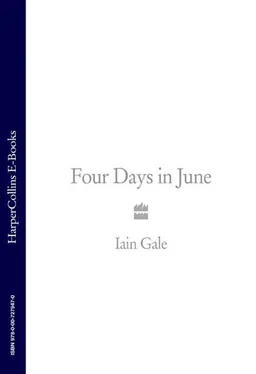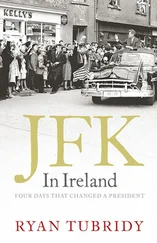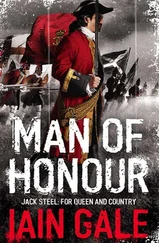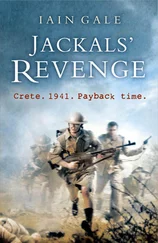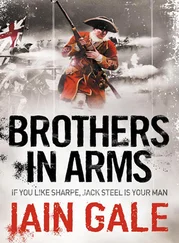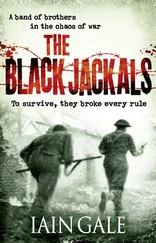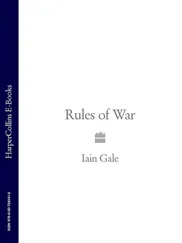De Lancey opened his mouth to suggest that the memorandum had not been entirely accurate, that perhaps the British and Allies might not be as close to them as the Peer imagined, but quickly decided that it would be better to say nothing. If the Prussians felt reassured, if they stood and fought, with or without Wellington, then they all had a chance. He nodded.
‘Quite so, your Grace.’
Wellington called for an aide and began to dictate: ‘To Field-Marshal Blücher, at Sombreffe:
‘My Dear Prince,
My army is situated as follows: Of the corps of the Prince of Orange, one division is here around Frasnes and Quatre-Bras. The remainder at Nivelles. My reserve is on the march from Waterloo to Genappe, where it will arrive at noon. The English cavalry will at the same hour be at Nivelles. Lord Hill’s corps is at Braine-le-Comte.
I cannot see any great force of the enemy in front of us and await news from your Highness and the arrival of troops before I decide on my operations for the day.
‘Conclude, “Your very obedient servant”. The usual form.’
He turned back to De Lancey. Smiled. ‘I think that will do it.’ Then to Somerset. ‘That farm, Somerset. The central position. Make sure that we hold it. Tell the Prince of Orange it is vital to the battle. Send down … a battalion of Nassauers. And Somerset, make sure that he covers the two farms further forward, to the left and right. And now to business. What new intelligence have we of the French? Scovell, come and tell me what you know while I tour the lines. Gentlemen, will you join us?’
Reining his horse down the slope behind the Duke’s party, towards the thin line of blue-clad Belgian infantry, De Lancey felt more keenly something which he had sensed immediately on first arriving at the crossroads. Now, he thought, I am at the centre of the world, the vortex into which events are being drawn. More than ever before, I am standing on the edge of the precipice. Nervously, he touched the reassuring coolness of the small, round stone in his pocket. All over Belgium, he thought, thousands of men are marching directly towards this curiously insignificant place, with its farms and its woods and its strangely shaped lake. Are marching towards the coming battle. Marching towards their fate. Towards death. Marching directly towards me.
SEVEN
Braine-le-Comte, 12 noon Macdonell
Macdonell was awakened by a respectful cough. He had been dreaming. Running through a stream of cool water in the shadow of friendly purple mountains, dappled with Highland sunshine. Opening his eyes he found instead only the florid face of Sergeant Miller.
‘Begging your pardon, sir.’
‘Sar’nt?’
‘Galloper, sir. From General Cooke, sir.’
Macdonell stood up, brushed his jacket, straightened his shako. Saw before him a boy of perhaps seventeen, in the ornate uniform of the Life Guards – Grecian helmet, high collar. The courier began to speak, stammering the orders out with a slight lisp.
‘The general’s compliments, Colonel, and would you move your men to the right and around the town and back on to the road. We proceed in the direction of Nivelles.’ And then, slightly embarrassed to be giving his superior officer an order: ‘With the greatest of haste, sir, if you please. You are the vanguard of the entire division.’
Macdonell nodded.
The aide coloured, nodded uncertainly in return, pulled round his horse and galloped away.
‘Sar’nt.’
‘Sir.’
Miller moved quickly. Some of the men had overheard the orders and, even before the sergeant had barked his commands, were already beginning to pack up. Swearing; fastening buttons and packs; scratching; stamping tired feet; shaking limbs. If the job was to be done they might as well get on with it. Quickly they transformed from a resting rabble into a smartly formed-up unit of recognizable platoons and companies.
It was midday. The sun was high in the sky. For three hours they had sat here. Such delays were nothing new to Macdonell. But surely, if George Bowles were to be believed, haste was of the essence. Someone – from his broad Devon accent and tuneful baritone, Macdonell guessed it to be Tarling, the company bard – began to sing:
‘Her golden hair in ringlets fell, her eyes like diamonds shining,
Her slender waist with marriage chaste, would leave a swan reclining.
Ye Gods above now hear my prayer, to me beauteous fair to bind me
and send me safely back again to the girl I left behind me.’
Biddle roared: ‘That man there. Who gave you permission to speak?’
‘I was singing, Colour Sergeant.’
‘I don’t care if you were playing the bloody piano, Tarling. No one ordered you to sing. Get fell in. I’ll tell you when you can sing.’
Still dusting themselves off, straightening their kit, the Guards gradually regained the Nivelles road and fell into step. It was drier now and, as they marched, clouds of yellow dust began to rise from beneath their feet. There was no more singing, just the tramp of leather and the repeated clank of wooden canteen against bayonet. The marching soon regained its regular motion. Seventy paces to the minute. Regular and steady, thought Macdonell. None better. He noticed now that there were fewer civilians on the road. Houses too were more obviously deserted. Signs that they were nearing the battle. Sometimes, from one of the few cottages still occupied, small children would venture out, sent to offer bread or fresh eggs to the sergeants. Macdonell, usually strict in such matters, turned a blind eye. It was freely given and he knew that Biddle and the other sergeants would ensure that all the men who deserved to would have a share.
It was early afternoon when at last they reached Nivelles. They came smartly to a halt. Macdonell could hear the guns now. How far away, he wondered. Five, ten miles? Ours or theirs? Corporal James Graham approached him, brushing dust from his tunic.
‘Sure, sir, that’ll be all for the day now from the good general. Do you not think?’
‘It is not my place, or yours, Corporal, to think about orders. But d’you hear that?’ He indicated the direction of the gunfire. ‘No. I am very much afraid that we have not seen the end of the road today. Look to your fellows if you would. Put them at ease.’
He was wise to rest them. It was a full ten minutes before he saw the young aide riding up. Redder in the face than ever, but more assured now.
‘Colonel Macdonell, sir. You are to advance into the town. If you please. Colonel Woodford’s orders, sir. And would you be so kind as to ascertain as to whether the town is held by the French, sir.’
Macdonell loosened his sword belt. Prepared to draw. ‘Have them untie ten rounds, Colour Sar’nt.’
Biddle turned to the company. ‘Ten rounds and look to your flints.’
Nervous hands fumbled with the strung-together cartridges, making ready for combat.
Macdonell began to act with automatic ease. This was his natural state. ‘Officers, to your companies. Bayonets if you please, Mr Gooch.’
He heard the familiar clank and scrape of barrels as 200 17-inch triangular blades were slotted into place. Macdonell drew his sword. Rested it flat against his right shoulder.
‘Follow me.’
They advanced 200 yards. A too familiar eternity. Waiting for the flash of the first enemy musket from behind a wall or through a window. The flash. The scream. But none came. And then they were in the town. There was no firing. No French. Merely a mess of abandoned possessions and confused local civilians, none of whom seemed sure of what to do. In the gutter to his right, sitting up against a wall, Macdonell saw his first Allied casualty of the campaign, a captain of Belgian militia. His grey trousers were covered in blood. He had been shot through the calf and the tourniquet improvised from his orange sash seemed to have staunched the bleeding, which had already stained it a deeper red. As Macdonell looked at him he smiled and spoke softly. ‘Hurry on. It does not go well for us.’
Читать дальше
